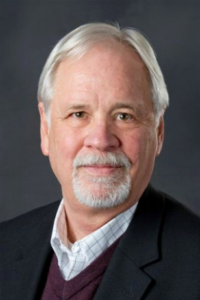People often shy away from discussing potentially contentious topics, especially political issues. Yet, discourse is essential to a functioning democracy. How often do you spend time consuming political media that differs from your own viewpoints? This can be overcome. Benjamin Franklin did so in 1727 by forming a discussion club he called The Junto. The term junto was used in 17th and 18th century England to depict a group united for a common purpose. Franklin’s Junto met every Friday night to discuss topics of the day, philosophical insights into practical issues, and schemes to improve society at large. The Junto thrived for thirty-eight years.
Franklin’s Junto was much like a college seminar, except there was less structure and the leader played a role in directing the conversation style, not the direction of the discussion. Franklin’s style favored Socratic dialog: listening, questioning, and avoiding direct confrontation. In addition, Franklin had several principles to foster critical thinking. According to Walter Isaacson (Benjamin Franklin: An American Life, NY: Simon & Schuster, 2003), Franklin’s principles included:
- Do not dominate the discussion. Franklin’s thought the greatest sin was “talking overmuch. . . which never fails to excite resentment.”
- Keep to the topic at hand. Some wandering is useful but avoid “prattling” and long stories.
- Do not seem uninterested, as it can be rude.
- Do not speak too much about oneself or one’s family.
- Do not fish for personal information or secrets.
- Probe for others’ opinions rather than openly disagreeing.
- Allow criticism to a point. Franklin thought criticism is like salt: “a little can give relish, but handfuls spoil all.”
- Gossip adds interest but again, too much gossip is a distraction and can lead to spreading scandal.
We have formed a Junto-like group in my community, Rivers Edge, in Shallotte, North Carolina. It is called The Forum. The Forum is a way to discuss world topics in a relaxed and cordial atmosphere. It has been fun and informative. Franklin’s principles keep the discourse polite, civil, nonpersonal, politically balanced, and interesting.
We started The Forum with only five people. Then membership spread through word-of-mouth and coverage in a community newsletter. Everyone is welcome, and the mailing list is now over forty people, with each meeting usually having eight to twelve attendees. Some of the best meetings have been with the smaller groups, as everyone gets more opportunities to talk. The attendees vary from meeting to meeting, depending on their schedules and interest in any topic. We meet for an hour and a half twice a month.
There are no limits to the topics that might be considered at The Forum, but social concerns, science, politics, and economics are typical. Members suggest topics, and they then facilitate on that topic. Over the past five years, discussions have probed almost a hundred contemporary issues, including the probability of life on exoplanets, cybercrime, election reform, understanding the Chinese political culture, and comparing our favorite diets. It is best to deal directly with potentially volatile issues, e.g., immigration and abortion. Many perspectives emerge in the discussion, and avoiding challenging issues is less satisfying. This makes The Forum fundamentally different from the typical conversation at a coffee shop, bridge club, or barber shop. In those sessions, people avoid controversial topics unless the group members have shared perspectives. Diversity of background and belief system builds a more meaningful discussion.
One does not need any background on a topic to come to the Forum. No one is pressed to say anything. Few of us have much insight on a given topic, anyway, and the background knowledge of the group limits the insights. Suppose someone in the neighborhood has professional experience in an area they are invited to, even if they don’t typically participate. For example, we asked a neighbor who worked in a nuclear power plant to discuss the safety of nuclear energy. A gun salesman in the neighborhood came during the time we discussed responsible gun ownership.
We do not solve problems typically. It is just fun to have the opportunity to express oneself. Sharing ideas allows one to refine their thoughts. It is better than throwing shoes at the television when disagreeing with a pundit.
Anyone can start their own Junto. First, get a few friends together. Find some interesting topics. Follow Franklin’s principles. Have some lively discussions. Then, perhaps most importantly, let your friends tell their friends to build the group size.
___________________________________________________________________________________________________________
 John Wm. Folkins, Ph.D
John Wm. Folkins, Ph.D
John Wm. Folkins, Ph.D., has experience teaching university classes at every level, from large introductory classes to doctoral seminars. His research in speech production was funded by the National Institutes of Health for over 20 years. He has been the Associate Provost for Undergraduate Education at the University of Iowa and Provost at Bowling Green State University. He is now retired and living in Rivers Edge, a community at the beach in Shallotte, North Carolina, and the Rivers Edge community should get the credit for forming The Forum.



 John Wm. Folkins, Ph.D
John Wm. Folkins, Ph.D


